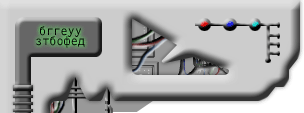|

Literary Devices
Authors of nonfiction, fiction, poetry, and drama use a variety of tools to create emotional mood, an attitude, a setting,
and characterization. Literary devices are one of the most effective implements that an author possesses to draw a mood more
artfully or to persuade more eloquently.
MCAS examiners want you to prove that you can spot literary devices and understand how the author is using them in a given
piece of writing. If you can spot literary devices it will make a big difference on your ELA Grade 10 final exam score!
Once you have read through these literary devices click on the Literary Devices Drill to see how well you have mastered the
terms.
Alliteration
The reoccurrence of initial consonant sounds. For example: "alliteration is a sweetly satisfying sound."
Allusion
An allusion is a reference to a well-known person, myth, historical event, biblical story, etc.
Antithesis
Antithesis occurs when two contrasts are presented close together, often using similar language. For example: H.L. Menckens
quote, "Those who know -- do. Those who don't -- teach," and Neil Armstrong's famous words, "That's one small step for man,
one giant leap for mankind."
Figurative language
Language that is not meant literally, such as a metaphor or simile, is figurative language.
Flashback
The flashback is a literary device that serves as an interruption in the action to show a scene that took place earlier.
Foreshadowing
Foreshadowing is a sort of hint of things to come -- usually a very unpleasant event.
Hyperbole
A wild exaggeration would be to say "her actions dropped away into nothingness," otherwise known as hyperbole.
Irony
A situation that is the opposite of what you'd expect -- or a comment that means something very different from what the speaker
is literally saying.
Metaphor
Metaphors are comparisons between two unlike things that do not use the words like or as. Examples: "I am a rock," "Carrie
is a frog among swans," and "Love is the star to every wandering bark."
Onomatopoeia
The use of words that sound like what they mean, such as "gulp" and "hiss."
Oxymoron
An oxymoron is a self-contradictory expression, like "absolutely unsure," "pretty ugly," or "rolling stop."
Personification
Speaking of an inanimate object as human is personification.
Rhetorical question
A rhetorical question is an unnecessary question -- made unnecessary because the speaker goes on to answer his or her own
query. A rhetorical question might be used to emphasize an important fact or development.
Simile
A comparison between two things using the word like or as is a simile. Example: "my love is like a red, red rose."
Understatement
The opposite of hyperbole, an understatement downplays the extremity or severity of a situation.
|

